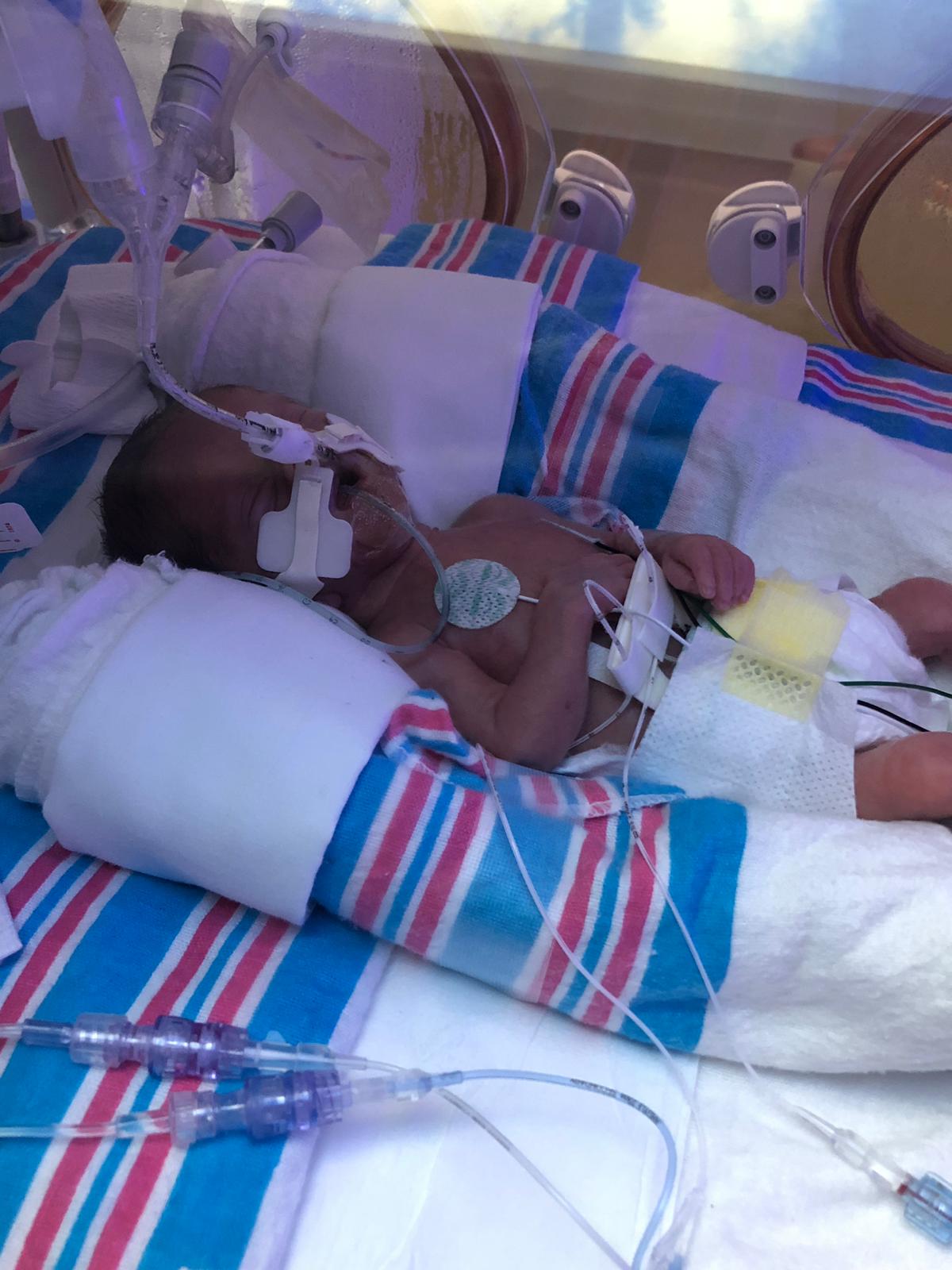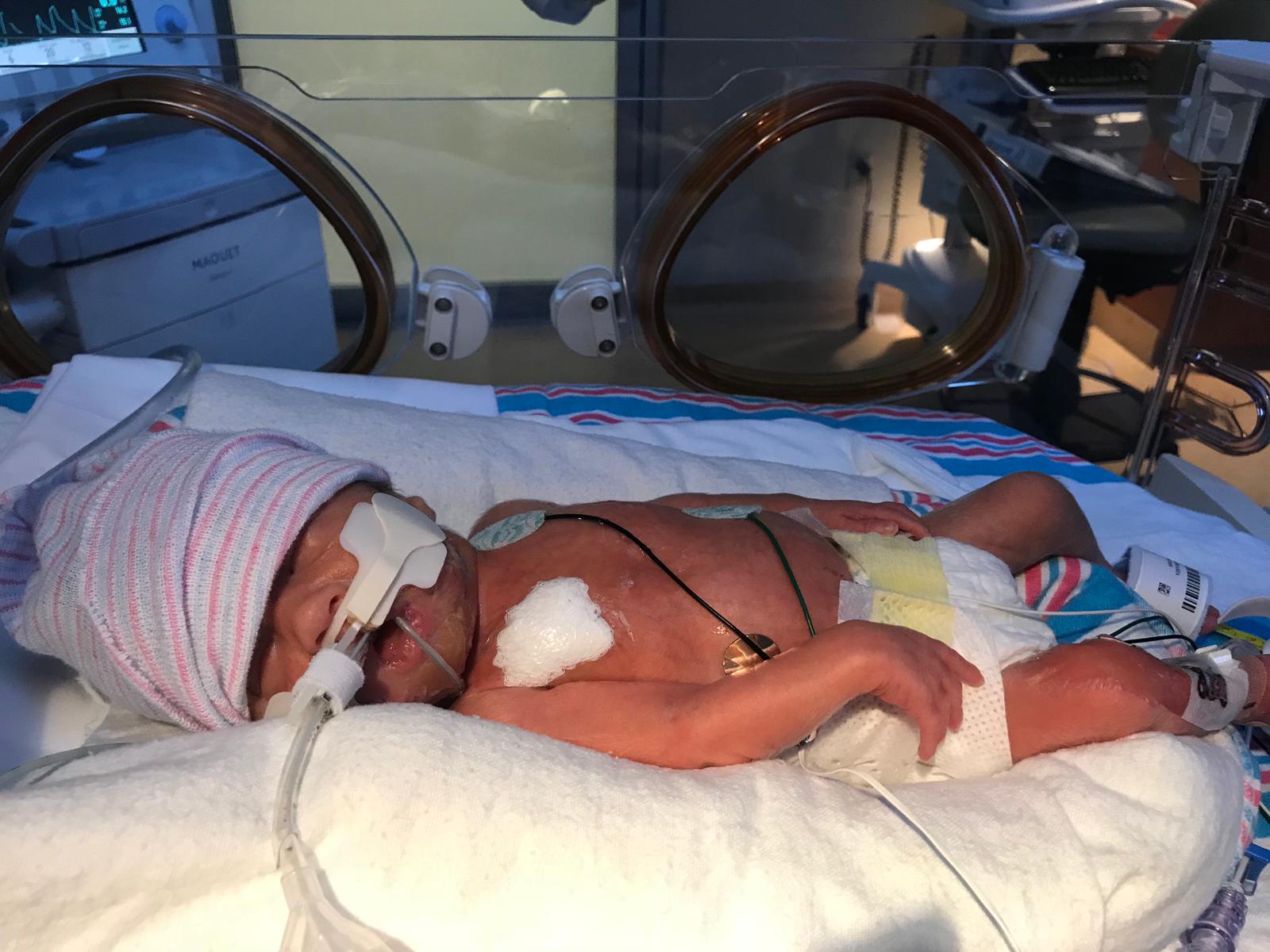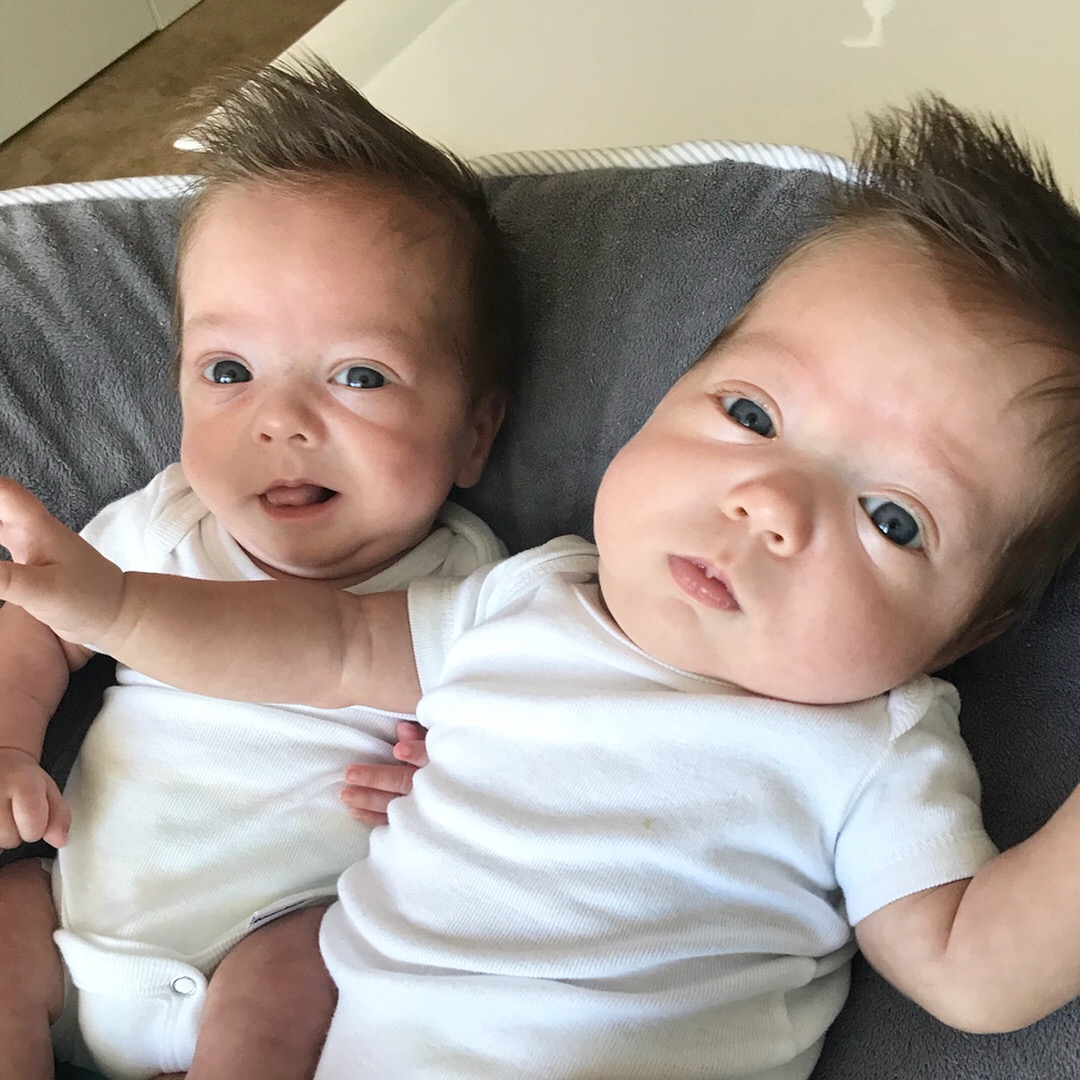Do you believe in miracles? ICU baby volunteers see miracles in the NICU every week. One remarkable story of survival, perseverance and love from this summer is that of the Quiroz Twins – the definition of miracle babies.
 News that you are expecting identical twins is almost always a surprise, even when twins run in your family. For Maria Jose and Francisco Quiroz, the prevalence of twins didn’t lessen how profoundly excited they were to learn of her pregnancy with identical twin boys. The family tradition continued. What was uncharted territory for the Quiroz family was the journey to save the lives of these babies – a battle not easily won.
News that you are expecting identical twins is almost always a surprise, even when twins run in your family. For Maria Jose and Francisco Quiroz, the prevalence of twins didn’t lessen how profoundly excited they were to learn of her pregnancy with identical twin boys. The family tradition continued. What was uncharted territory for the Quiroz family was the journey to save the lives of these babies – a battle not easily won.
Can you imagine having an ultrasound and learning that one of your twins is receiving significantly more fluids and nutrients than the other, potentially threatening the lives of both twins? It’s the news Maria Jose and Francisco heard when she was diagnosed with twin-to-twin transfusion syndrome (TTTS) at week 14 of her pregnancy. TTTS is a rare condition in which blood flows unevenly and one twin receives disproportionally more blood than the other. Depending on the severity of TTTS, the mortality rate rages between 60 and 100 percent.
Doctors told Maria Jose that her best option, albeit a risky one, was surgery at the Mayo Clinic in Rochester, Minnesota. Maria Jose was terrified, but soon after, boarded a plane to meet the specialists who would work to save her boys. Within a few hours after the procedure, her doctor could tell that the surgery had been a success. It seemed Maria Jose and her twins were in the clear.
It was, however, only the first hurdle of many for the boys.
 Maria Jose was put on complete bedrest and had to stop working. At week 25 of pregnancy, her water broke, and it looked like delivery of the boys was imminent. Medical teams at South Miami Hospital were able to successfully stop delivery and admitted her to the hospital for 24-hour monitoring until the babies were born.
Maria Jose was put on complete bedrest and had to stop working. At week 25 of pregnancy, her water broke, and it looked like delivery of the boys was imminent. Medical teams at South Miami Hospital were able to successfully stop delivery and admitted her to the hospital for 24-hour monitoring until the babies were born.
Twenty days after being admitted to South Miami Hospital, Maria Jose’s water broke completely, and the boys were delivered at 28 weeks – three months premature.
The twins were stable for a brief “honeymoon” period, but on their second day of life, baby Fran’s lung collapsed. Thus began Maria Jose and Fransisco’s terrifying experience, as the twins endured many complications that often accompany such premature birth.
Maria Jose, with the support of her husband and family, stayed by her boys’ side praying.
Despite days of setbacks in the boys’ progress, there were moments of hope that the Quiroz family held on to. “Prasanna-Kumar “Doctor B” Basavegowda MD, Doctor B would give me a smile of reassurance even when the news he delivered to us was devastatingly bad, but I held on to his hope,” Maria Jose says.
Fran’s health began improving, and news that he was nearly ready for discharge came. Maria Jose couldn’t bear the thought of separating the twins, who would use different sounds to “speak” to each other in the NICU, and going home with only one. Leaving Ricky behind in the hospital meant, for Maria Jose, that for the first time ever, they would have separate lives.
After 71 days in the NICU, Fran went home, while Ricky remained with a large hernia that needed repair. Doctors warned Maria Jose and Francisco that it could take up to nine months for Ricky to be ready for hernia surgery. Maria Jose had a feeling, though, that a miracle would happen for her son. She was right! Ricky had the hernia procedure, and after 92 days in the NICU, he joined his brother at home.
“I learned to be present for every moment I was with the boys in the NICU,” Maria Jose recalls. My husband reminded me and taught me to take everything day-by-day. My faith and my husband are how we made it through this. I have completely changed as a person because of my boys, and I would not have had it any other way.”

